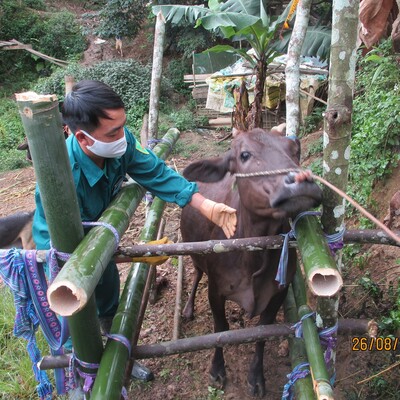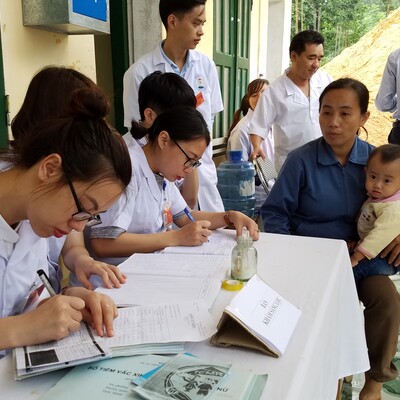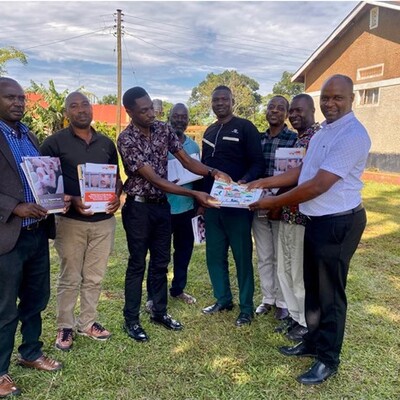

Boosting Africa's capacity in genomics and bioinformatics
The International Livestock Research Institute (ILRI) partnered with the Africa Centres for Disease Control and Prevention (Africa CDC) and the African Society for Laboratory Medicine (ASLM) to impart genomics and bioinformatics skills to public health scientists from 12 African countries during an intensive hands-on training workshop held on 6–17 May 2024 at the ILRI Nairobi campus.
Genomics and bioinformatics are two related fields of science that help our understanding of biology and biological data.
Genomics uses the techniques of genetic and molecular biology to study the entire genome (an organism’s complete set of DNA) and the large amounts of corresponding data generated from it.
Bioinformatics uses biology, chemistry, physics, computer science, computer programming, information engineering, mathematics and statistics to store, analyze and interpret biological data. It is especially useful when the data sets are large and complex.
Genomics and bioinformatics are useful tools for pathogen surveillance, enabling public health scientists to rapidly detect and identify disease-causing organisms and thus respond to disease outbreaks in a timely manner to save lives and avert economic losses.
The ILRI genomics platform, headed by molecular biologist Samuel Oyola, is one of Africa’s centres of genomic excellence.
The platform has invested in state-of-the-art genomic infrastructure comprising four Illumina machines: NextSeq2000, NextSeq550 and two MiSeqs.
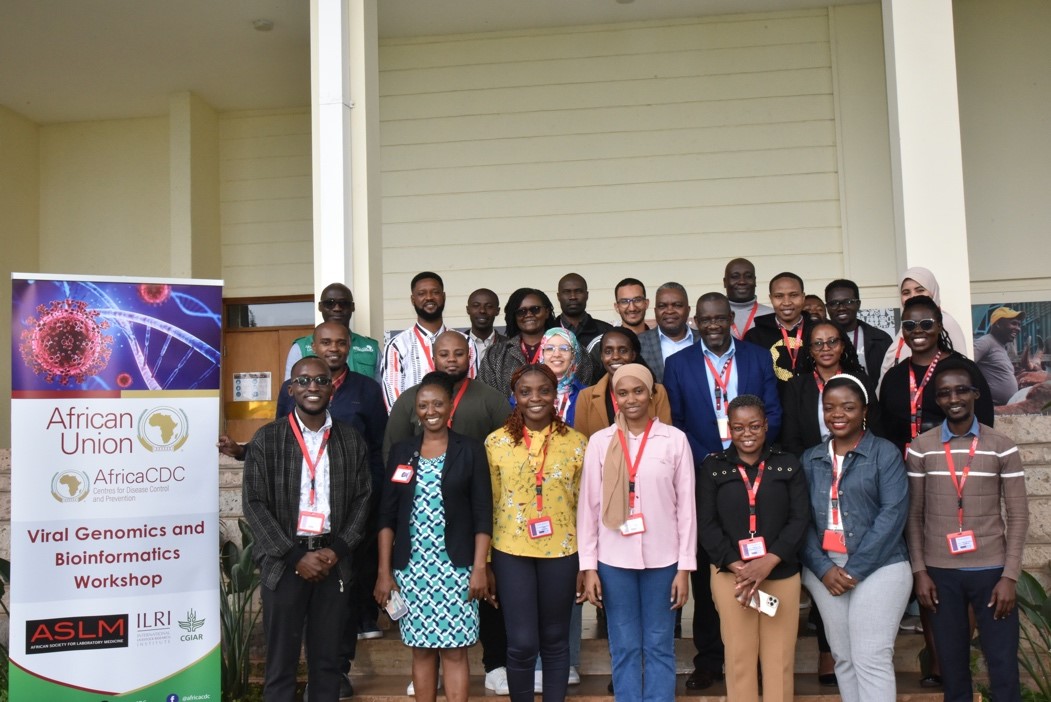
Besides Illumina, the platform also runs Oxford Nanopore technology and is in the process of expanding genomic technologies to include Ion Torrent, PacBio GeneMind and MGI.
The data generated from these high-throughput machines are transmitted to ILRI’s high performance computing clusters for data analysis, interpretation and visualization.
ILRI is using this robust platform to develop universal genomic tools that can be used in medicine and agriculture.
The application of genomics in responding to disease outbreaks was seen during COVID-19 pandemic.
However, the African continent did not respond optimally to the pandemic due to lack of capacity in advanced molecular biology, specifically in genomic technologies.
Therefore, Africa CDC, through its Pathogen Genomics Initiative, in collaboration with the ILRI genomic platform, has prioritized the expansion of foundational capacity and the development of a skilled workforce for molecular diagnostics, pathogen genomics and bioinformatics across member states of the African Union.
The initiative seeks to build a continent-wide network of pathogen genomics and bioinformatics experts to improve disease surveillance and public health partnerships in Africa.
The training workshop, facilitated by ILRI research staff, was one of the activities under this initiative, aimed at boosting the continent’s capacity in viral genomics and bioinformatics.
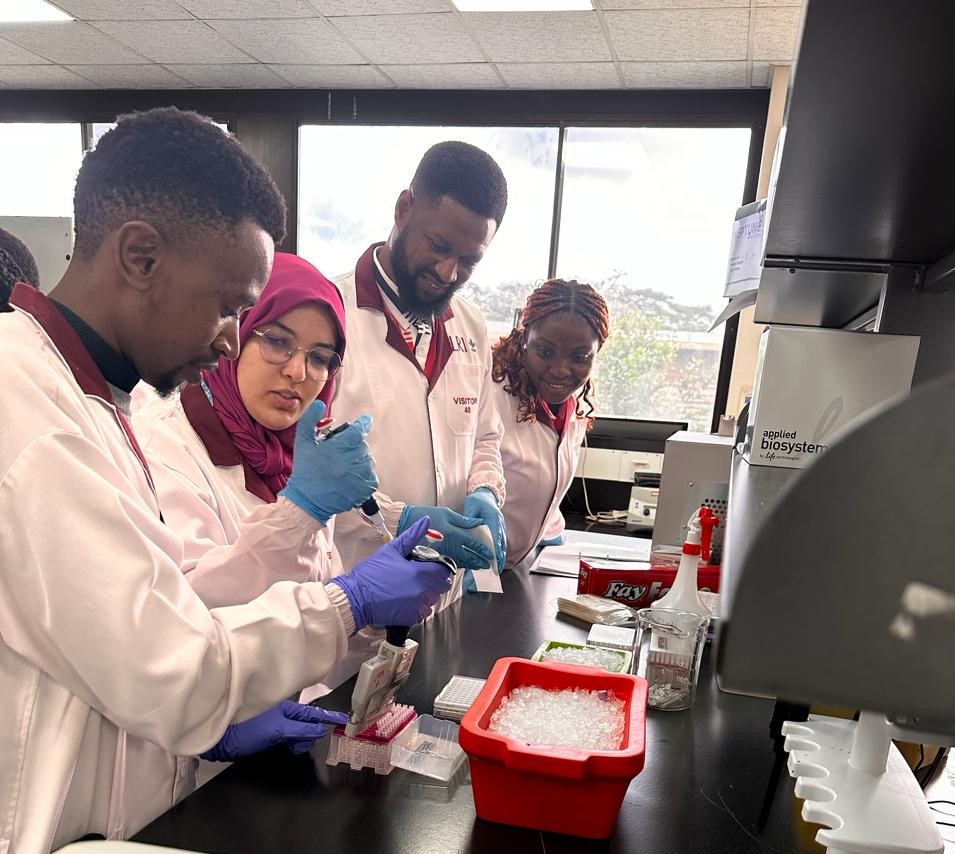
Edward Kiritu Nyaga, a research associate at the ILRI genomics platform, was one of the training facilitators at the workshop.
“I had a good experience facilitating and impacting the group with molecular lab skills and I hope the trainees are able to implement the techniques in their institutes,” Nyaga said.
The training opportunity was well received by the participants, who were enthusiastic about applying their newly acquired knowledge and skills in their respective research institutes to improve their laboratory practices and services.
“I gained experience with Illumina and Nanopore sequencing techniques and acquired extensive knowledge in bioinformatics analysis using Linux,” said Ihssane Benzaarate from the Pasteur Institute of Morocco.
Emmanuella Obike from the Noguchi Memorial Institute for Medical Research in Ghana found the workshop to be very insightful, noting that she accumulated a wide range of knowledge from genome sequencing wet lab procedures to bioinformatics analysis of sequencing data to inform public health practices.
“This workshop introduced me to the procedures involved in preparing viral samples before library preparation and finally sequencing. I was also introduced to the necessary steps sequencing data is taken through during the bioinformatics analysis phase, and how to interpret analysis results,” Obike remarked.
“I look forward to sharing this newly acquired knowledge with my colleagues in the Genomic Core Facility at the Noguchi Memorial Institute for Medical Research,” she added.
Victor Oripenaye, a research assistant at the Nigeria Centers for Disease Control and Prevention, appreciated the practical exposure to the high-throughput genomic technologies.
He said: “During the course of this training, I have been exposed to viral sequencing and surveillance at a whole different level using different modern technologies such as Illumina and Oxford nanopore technology.”
He also appreciated learning how to analyze data generated from sequencing and how to bring interpretations to the data.
“I learned that there are different quality checks at every level of sequencing. I will take these lessons back to my station in order to improve our work standards and have reproducible results,” he said.
You may also like
Related Publications
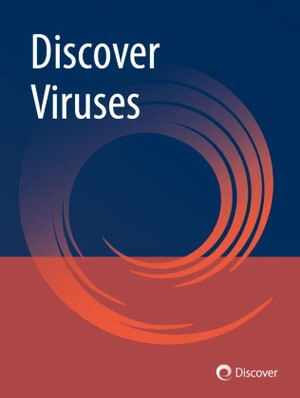
Drama-based mobile phone-delivered virtual learning as a way to support improved biosecurity in smallholder pig farming
- Chenais, E.
- Fischer, K.
- Kagolobya, R.
- Dione, Michel M.
- Ståhl, K.
- Sternberg-Lewerin, S.
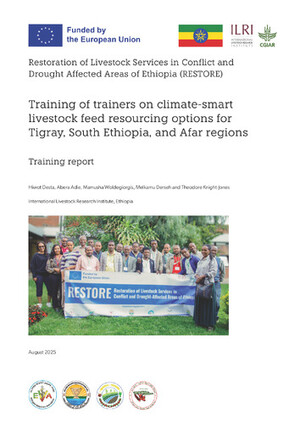
Training of trainers on climate-smart livestock feed resourcing options for Tigray, South Ethiopia, and Afar regions
- Desta, Hiwot
- Adie, Aberra
- Lemma, Mamusha
- Bezabih, Melkamu
- Knight-Jones, Theodore J.D.
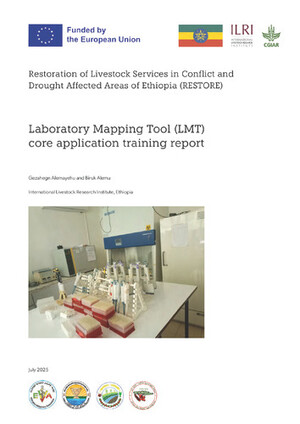
Restoration of Livestock Services in Conflict and Drought Affected Areas of Ethiopia (RESTORE): Laboratory Mapping Tool (LMT) core application training report
- Alemayehu, Gezahegn
- Alemu, Biruk G.
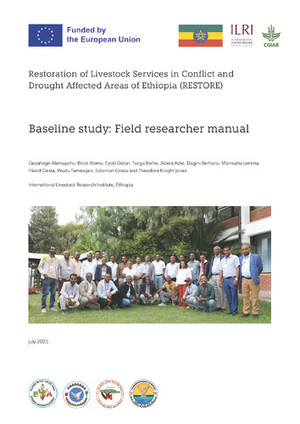
Restoration of Livestock Services in Conflict and Drought Affected Areas of Ethiopia (RESTORE) baseline study: Field researcher manual
- Alemayehu, Gezahegn
- Alemu, Biruk G.
- Gelan, Eyob
- Berhe, Tsega
- Adie, Aberra
- Berhanu, Dagim
- Lemma, Mamusha
- Desta, Hiwot
- Temesgen, Wudu
- Gizaw, Solomon
- Knight-Jones, Theodore J.D.
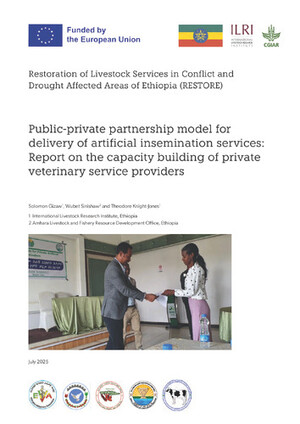
Public-private partnership model for delivery of artificial insemination service: Report on the capacity building of private veterinary service providers
- Gizaw, Solomon
- Sinishaw, W.
- Knight-Jones, Theodore J.D.
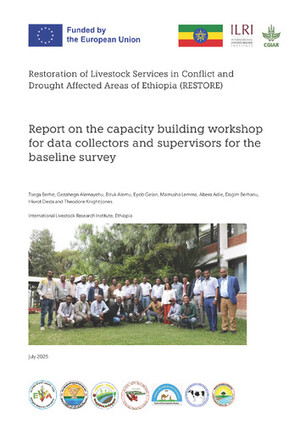
Restoration of Livestock Services in Conflict and Drought Affected Areas of Ethiopia (RESTORE): Report on the capacity building workshop for data collectors and supervisors for the baseline survey
- Berhe, Tsega
- Alemayehu, Gezahegn
- Alemu, Biruk G.
- Gelan, Eyob
- Lemma, Mamusha
- Adie, Aberra
- Berhanu, Dagim
- Desta, Hiwot
- Knight-Jones, Theodore J.D.





